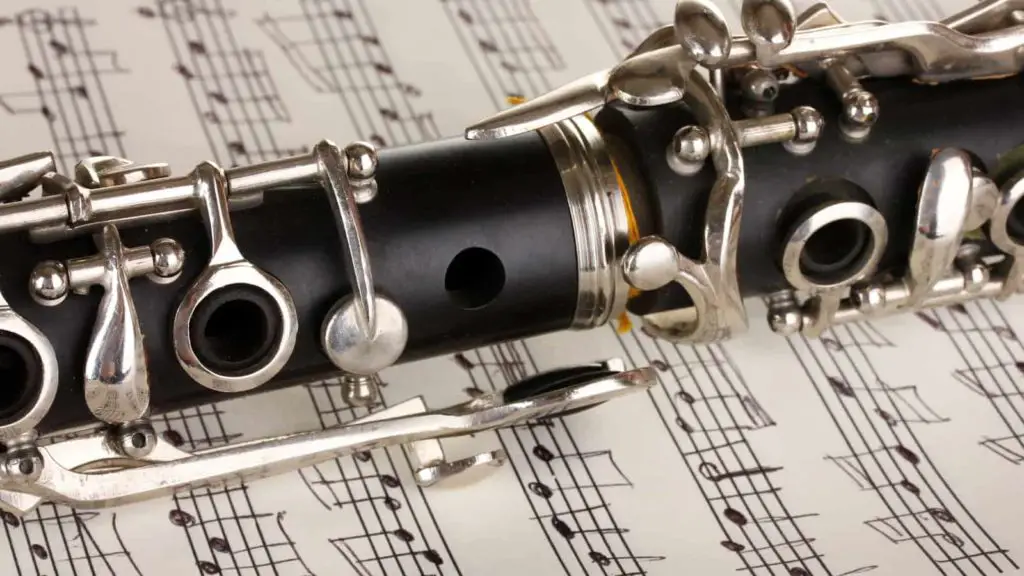Have you ever been at a football game or Marching band competition in a drizzle or full-on storm and wondered how or why the Marching Band keeps playing even when they are getting soaked? What about the effect the rain will have on their instruments.
Generally, most Marching Bands will play and perform in the rain, unless there is lightning or it is raining so hard that the players can’t see their music in front of them. Rain is not good for most instruments and care needs to be taken to protect them and get them dry as soon as possible.

In this article, we will discuss the effects of water on Marching band instruments as well as some tips and tricks on how to recover from playing in the rain.
Why Do Marching Bands Play in the Rain?
From the director to the players Marching Band members are committed to their sport. They spend countless hours practicing and preparing their shows often practicing in harsh weather conditions. They take pride in their hard work and dedication (rightfully so)! If they have an audience to play to, they will play rain or shine!
Challenges For Bands that Play in the Rain
Most Marching Band players and directors will tell you that it’s worth it to play in the rain despite all the challenges that come from it.
- Possible damage to their uniforms. Marching Band uniforms can be almost as expensive as the instruments. Great care goes into keeping the players looking clean and sharp. Most uniforms can not be easily washed or clean, and along with rain comes mud that will likely get all over your uniform.
- A slick and wet field makes marching difficult. Most marching band members will tell you that trying to keep traction and not slip or trip on a wet field can be very challenging especially for players who have large instruments.
- Color guard has a difficult time performing in the rain. My daughter experienced this first hand. Since they are moving and dancing around the field so much and their shoes don’t have as much traction as the other Marching Band members they are more prone to slip and be injured.
The rain makes their flags slippery and hard to hold onto as well as difficult to catch tosses.
They do more movements on or close to the ground so they may have to kneel, sit, or roll, on a wet muddy field. This can cause a lot of damage to their uniforms. After my daughter’s team performed in the rain, the band boosters spent over 8 hours handwashing the mud from their uniforms.
Can Woodwinds Play in the Rain & Get Wet?
Woodwind instruments can easily be damaged by rain and moisture. The pads can bloat and swell, reeds can crack and split, and the screws, springs, and rods can get rusty. Instruments made of wood should not be used to march with.
Some novice Marching Band players believe that woodwind instruments getting wet is not a big deal since they get wet with spit and condensation from playing anyway.
While it is true they do get wet with condensation from playing the amount of moisture they are subject to in the rain is much more and will damage the instrument if not cared for properly.

Clarinet players for example should choose to play a plastic instrument as opposed to a wooden one. The plastic instruments are cheaper in price and will take harsh weather better. Even with a plastic clarinet players should work toward keeping their instrument out of the rain as much as possible.
Flute and Piccolo Players have the challenge of bloated pads but even more concerning than that is the probability of the rods and springs rusting. If the rods and springs rust the keys will not move properly and this makes it extremely difficult to play any music on the instrument.
Playing the piccolo in Marching Band is ideal over the flute since it’s much easier to keep the smaller instrument dry.
Saxophone players also have pads that can swell and deteriorate if repeatedly exposed to rain and moisture. Not only can the pads be damaged, but the lacquer on the instrument can be tarnished and damaged.
Top Tip: It’s always best to have 2 separate instruments for Marching Band and Symphonic Band. A cheaper one for marching outdoors and a nicer instrument that will produce better sound for playing in a Symphonic Band.
There is also the option of getting weather-resistant instruments, but those tend to be fairly high in price and are really only recommended for professional players such as military band players or highly competitive college Marching Bands.
Can Brass Instruments be Played in the Rain and Get Wet?
Brass instruments are not as susceptible to damage from rainy weather. While they can be played in the rain, it is essential to clean and dry the instrument when finished. Mud and dirt from marching on wet fields can damage the instrument.
Because brass instruments don’t have pads and reeds they are more water-resistant than their woodwind counterparts. This doesn’t mean however that they can’t be damaged by water.
If brass instruments are left wet the moisture can build up and over time cause damage to the lacquer. Repeated exposure to rain and dirty water can leave scaly deposits inside the instrument that will be hard to clean if left to build up.
Repeated water exposure can wash away the lubricant and valve oil making things get stuck and difficult to play.
Top Tip: After being exposed to rain make sure to properly wash the instrument (give it a bath) as well as let it sit out of its case and completely dry out.
Can Percussion Instruments Be Played in the Rain?
For all metal instruments such as symbols, triangles, or bells rain isn’t as big of a deal, as long as they get dried off very quickly, but for drums and mallet instruments rain can severely damage the wooden and metal parts of these instruments.
The wooden parts of the instruments have the possibility of warping, and the metal part can easily rust. If you know there is a possibility of playing in the rain be prepared with plenty of dry towels to clean and dry instruments as soon as you are done.
It can be useful to get help from friends or booster members.
Yamaha wrote a great article about caring for drums in rainy weather. You can read it here What To Do When Marching Drums Get Wet
How to Protect your Instrument in the Rain
Hopefully, most venues will have some covered area or indoor buildings that will provide adequate spaces for the band to warm up.
When moving from indoor spaces to outdoor spaces it’s important to keep your instrument covered as much as possible. Either by putting it back in its case or covering it with something else like a jacket or poncho.
For the instruments that are very susceptible to damage in the rain, it’s important to do what you can to protect them at all times. Wearing a raincoat can protect your uniform, but a poncho will be easier to drape over your instrument to keep it dryer in cases of heavier rain.
Generally, the band director will have a standard procedure for all players since looking uniform is important to the aesthetics of a Marching Band show.
On rare occasions, Marching Bands may perform without the woodwind section since the brass instruments can handle rain better.
Keep your instrument away from the ground as well as any standing water.
Caring for your Instrument After it Gets Wet
The number one thing you can do for your instrument after playing it in the rain is, get it dry as quickly as possible. If being in the rain is unavoidable, for example, you need to stay until the end of the football game, store your instrument in its case and on the equipment trailer or under cover of a canopy.
Having the equipment trailer close to the field and easily accessible can help larger instruments such as percussion to get put away out of the rain faster. Band boosters can be ready to help with providing towels or putting instruments away quickly.
Make sure to dry your instrument on in the outside and inside of the instrument.
Top Tip: It’s EXTREMELY important that after performing in wet conditions when you get home take your instrument out of its case and let it dry overnight! Leaving a moist or wet instrument in a case for several days or weeks will do the most damage to your instrument!
If a wet instrument is left in its case not only do you run the risk of keys and pads warping, but you will likely find a case full of mold and mildew next time you open it.
Disclaimer: This post may contain affiliate links. We only recommend high-quality products that are used and recommended by real musicians. If you use these links to buy something we earn a small commission.
